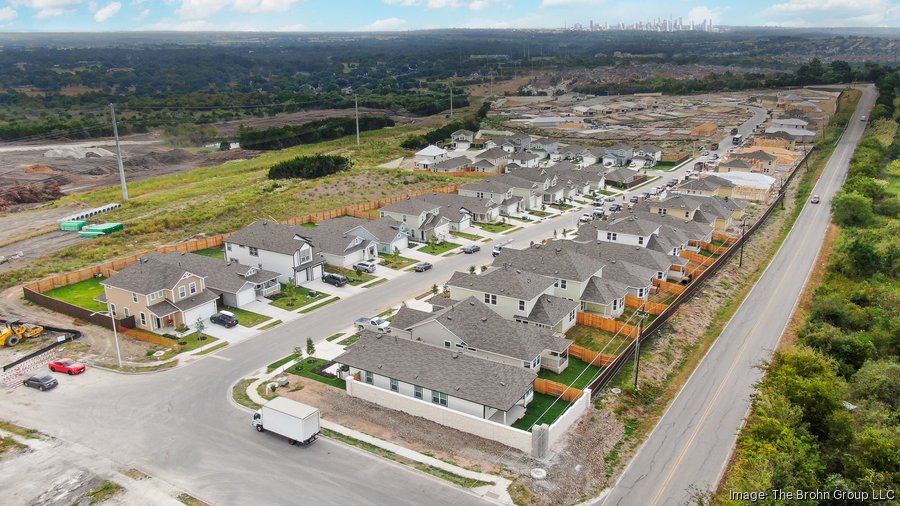
Austin Business Journal writes, "developers in Travis County have a financial tool back at their disposal that's designed to support large-scale real estate projects, but they may not be supportive of all the changes made to the reworked program.
That's because revisions to public improvement districts, or PIDs, include an increase in community benefit charges tied to certain projects. Previously, developers paid a fee equal to 10% of total investment if their projects didn't include enough affordable housing, but that has been raised to 17.5%. The application fee for a PID has also been increased from $55,000 to $150,000.
Adam Boenig, co-president of Brohn Homes — among the region's most active residential developers — called the higher fees a "pretty drastic hit." Boenig said he's worried the charges will eat into the profitability of future projects.
"It will be interesting to see how the market and developers adjust to the new PID policy, as I see a mixed bag of opinions," Boenig said. "I truly believe PIDs and other alternate funding mechanisms can be very successful for builders and developers."
PIDs enable counties and cities to levy additional taxes on sites to pay for specific project-related improvements. They're used in counties across Texas to help cover some costs to developers, such as road construction, water and wastewater systems and landscaping, when they build master-planned communities and other big projects. Applications re-opened for the program on Feb. 1.
Under the new rules, any PID in which single-family homes will be built must have at least 15% of them priced affordably for people whose income is at or below 80% of the area median income, or MFI. For a family of four, 80% MFI is $93,450, according to Austin's housing department. If a developer does not meet those affordable housing requirements, they are required to pay the community benefit fee.
The fees are used to support equitable affordable homeownership programs, such as fair-housing efforts in historically underinvested communities. They also support services for families, such as early childhood education, after-school programs, support programs for family caregivers, family counseling programs and community health care programs.
A 2023 report from the Austin Board of Realtors found that only about 18% of Austin-area renters earn enough to qualify for a mortgage on a home, and about 35% of existing homeowners earn enough to qualify for a mortgage for a median-priced home.
Developers will pay the fees at the time an assessment of the project is levied and when a bond is sold to finance it. Under the new rules, applicants are allowed to make a case to reduce the fee by comparing it to other neighboring projects or offering additional economic analysis.
Across the state, other PID community benefit fees range from about 10% to 20% of total investment, according to Travis County. Some cities, like neighboring Manor, require up to 30%.
Boenig said his company is moving forward with its Cloverleaf development, a project located within the Bella Fortuna PID approved in 2019, before the county put a moratorium on new PIDs and then reinstated the program with the higher fee increase. Located east of Interstate 35 in far South Austin near Onion Creek, three phases of the Cloverleaf project are now complete and two additional phases are to start soon. The project will create a total of 530 new homes for Austin.
The community benefit fee for that project is roughly $1 million, Boenig said, although the precise amount is a "moving target" that will be contingent upon the bond rate secured. But if the project had been approved under the county's new policies, the fee would have been $1.75 million, he said.
Garrett Martin, the CEO of MileStone Community Builders LLC, a firm that is currently working on a PID agreement for its Persimmon development with the city of Buda, said the return of the program in Travis County marks a new opportunity. Martin said the program allows firms like MileStone to foster public-private partnerships, resulting in projects that address community needs of Travis County and Austin.
MileStone's 775-acre Persimmon development is anticipated to create thousands of new homes south of Austin."
Source: Austin Business Journal
Written by: Mike Christen
Published: February 12, 2024
Posted by Grossman & Jones Group on
Leave A Comment